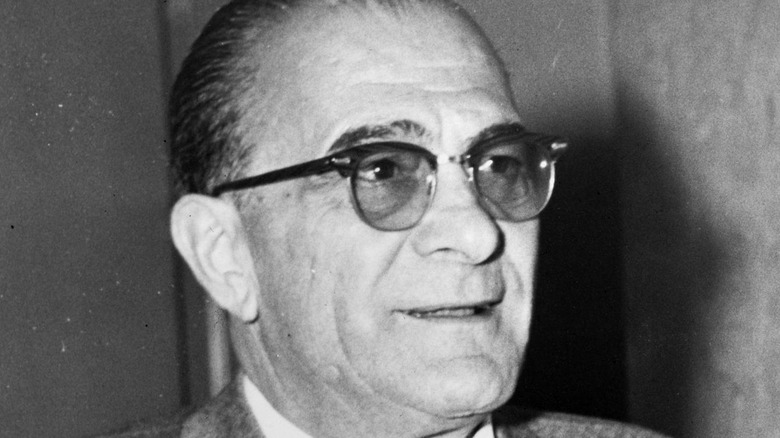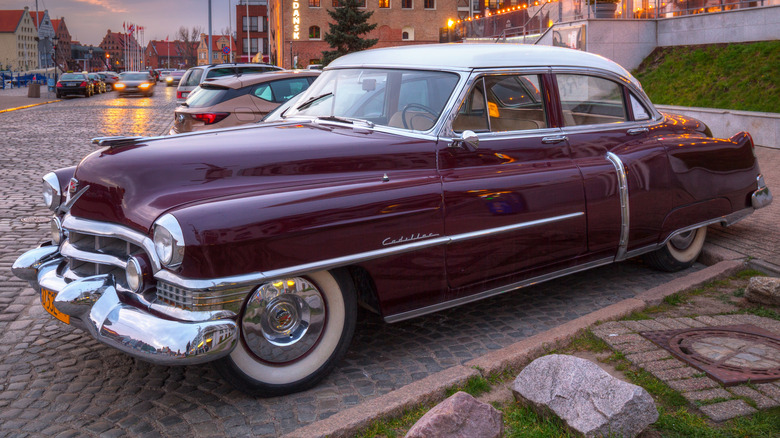The Real Reason The Mafia's Golden Age Ended
The mafia enjoyed decades of criminal prosperity in early 20th century America. Born from Sicilian criminals seeking safety across the ocean, the American mob went from one of several 19th century New York street gangs to the five Italian-American crime families that became the virtual definition of organized crime. Their enterprise was unmatched during the prohibition era, when rival gangs constantly warred with each other and the police (at least, those police who hadn't been bribed to look the other way).
The American and Italian mafia held so much power that in World War II they contributed to the Allied invasion of Italy after Germany occupied the country. After the war, however, they were back to solely being an enemy of the federal government. In 1957 the mobster world was in a state of temporary disarray as many people died in the struggle for control of the Luciano crime family. In the hopes of settling the issue with himself as the head, Vito Genovese (above) arranged for a large summit in Apalachin, New York. Unfortunately for him and most of the other families, this secret meeting was the end of many of their criminal careers (via National Crime Syndicate).
Mafia leadership was caught because of too much meat and too many Cadillacs
The responsibility of hosting this massive gathering fell to mobster Joseph Barbara, who in preparation for so many guests ordered $200 worth of meat. Such a large order from a mobster drew the attention of police sergeant Edgar Croswell, who had prior run-ins with Barbara and decided to watch the household (via All That's Interesting). He and other state troopers began to notice a massive influx of expensive Cadillacs and other cars from out of state heading to the Barbara residence (via Slate). As the meeting was underway police raided the property, apprehending 62 prominent mafia figures from New York, California, and Florida, as well as Cuba and Italy.
Despite their efforts to plead ignorance and claim they were there for a barbecue, several were removed from society (many could not be prosecuted due to a lack of evidence). The fact that the raid happened as a direct result of Genovese's plans cost him his reputation. He was not missed when he died in prison years later, as this event left permanent scars in the mafia hierarchy (via NY Daily News). Ironically, until his death in 1962 it was the exiled Luciano (whose vacant position led to the crisis) that helped the mafia embrace narcotics as a new source of revenue and curtail further degradation (via History).

